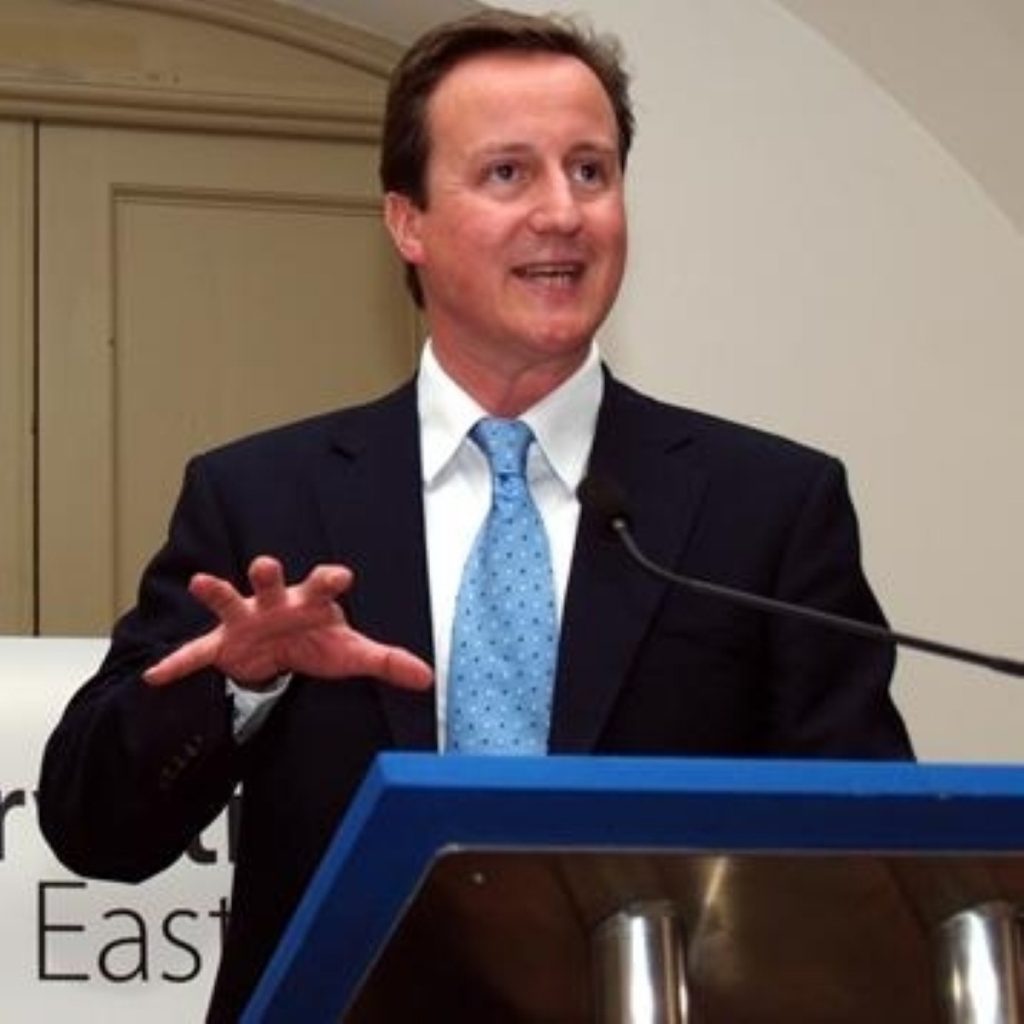Cameron commits to spending cuts
By Matthew West
David Cameron has committed a future Conservative government to spending cuts, starting with reducing ministerial salaries and freezing MPs’ salaries at current levels.
The Conservative leader said a future Conservative government would freeze MPs’ salaries at their current levels for the duration of the next parliament. He also announced that the salaries of government ministers would be cut by five per cent, while the subsidies for the many bars and restaurants in parliament would be scrapped.
Mr Cameron also talked about the need to cut the fleet of ministerial cars by about a third. The Conservative leader said the cuts would save around £120 million and amounted to only a “pin prick”, but he added that government and MPs had to lead by example.


The Tory leader said: “Dealing with this deficit crisis must be the priority for our economy and it will frankly dictate our politics for years to come.”
“You have to be frank about the scale of the challenge and candid about what it means.”
He added: “Unlike any previous politicians in opposition… we’ve taken the bold step of saying to the British public very clearly, with a Conservative government, public spending will be cut. Not reduced in growth, not frozen, but cut.”
“That candour is a world away from the current Labour government,” he said, accusing Mr Brown of saying spending on programmes would have to rise – when his own Budget figures showed it would come down.
The Conservative leader’s speech came ahead of a speech given by the chancellor of the exchequer this afternoon to business leaders in Cardiff.
Alistair Darling said the government is willing to look at spending cuts but will not announce any specific proposals. The speech is considered a break with the current strategy, which has seen prime minister Gordon Brown trying to show Labour investing in public services and the Conservatives as cutting essential services.
In his speech to the Welsh Chambers of Commerce Mr Darling said “well-managed and targeted public investment” is needed.
He will add: “Gordon Brown and I have spoken of the hard choices needed in public spending over the coming years.
“We won’t flinch from the difficult decisions that will be necessary, and we will always act guided by our core values of fairness and responsibility.
“This will be our test of character. Properly targeted public investment can and should make a difference.
“That means making choices and setting priorities – shifting resources to the front line. It means more efficiency, continuing to reform, cutting costs, public and private sectors working together.”









